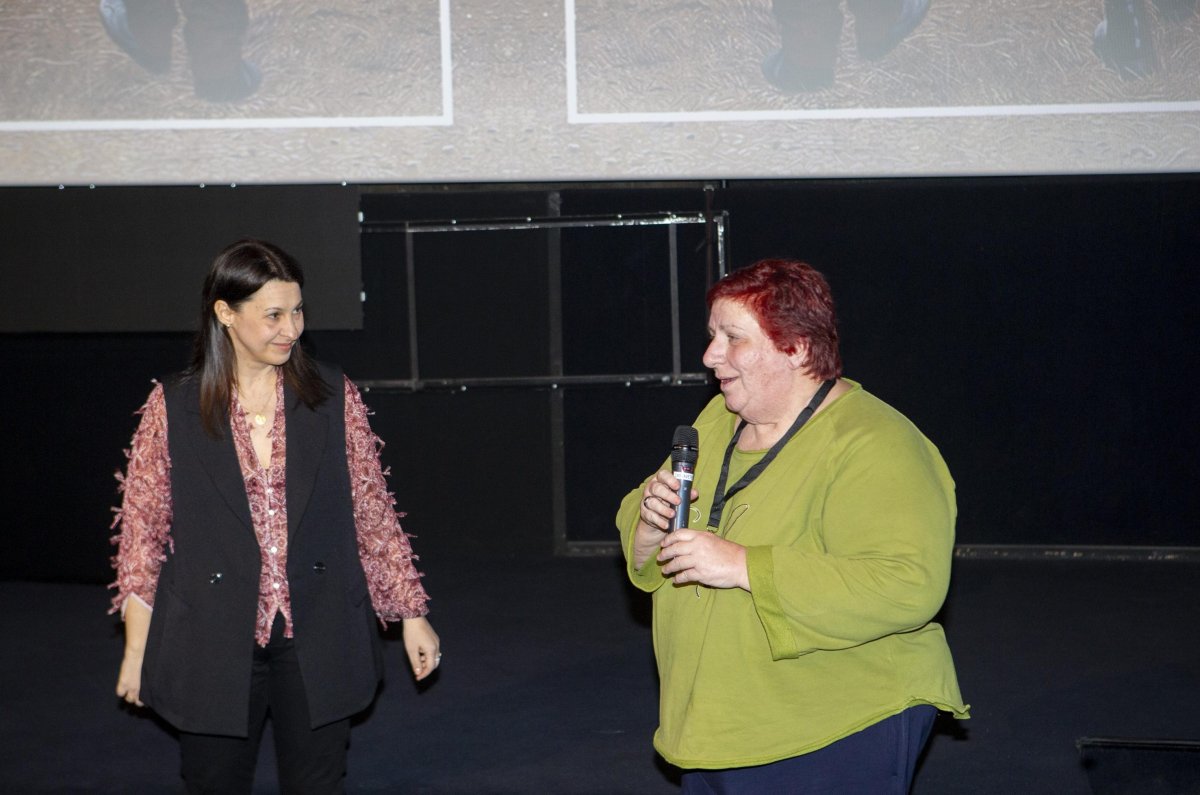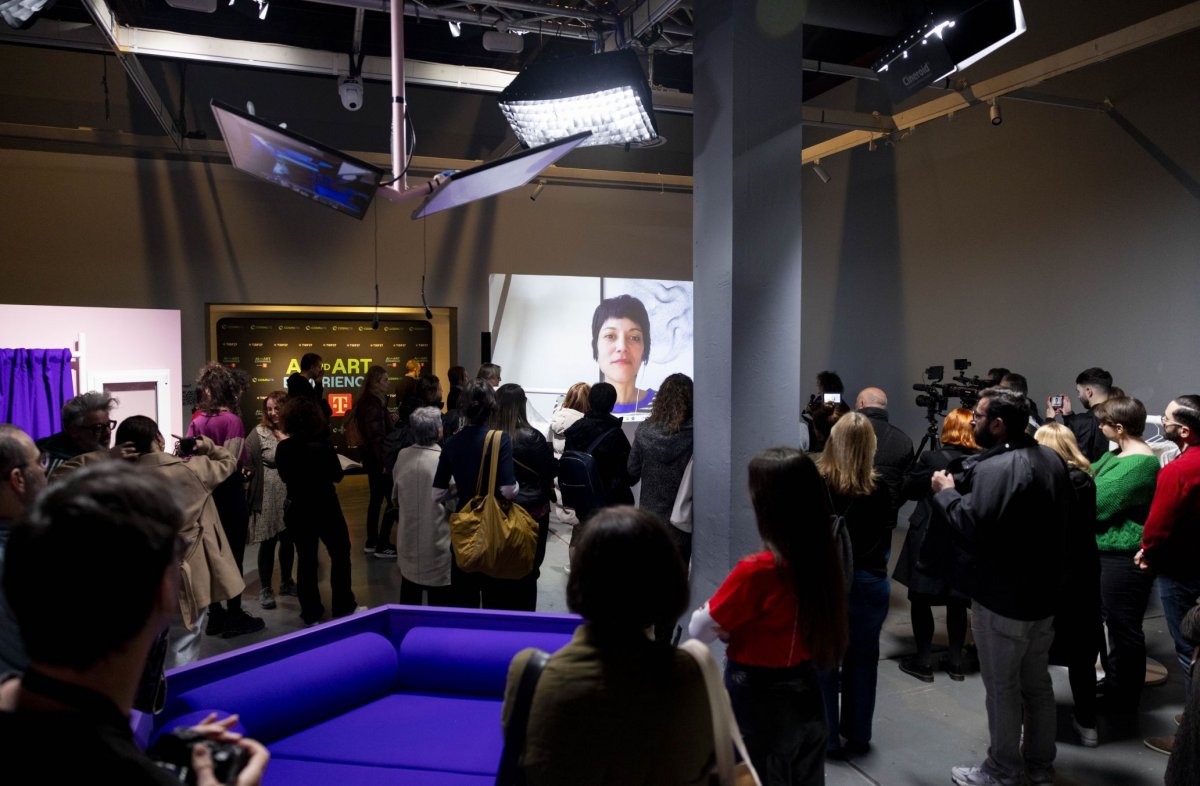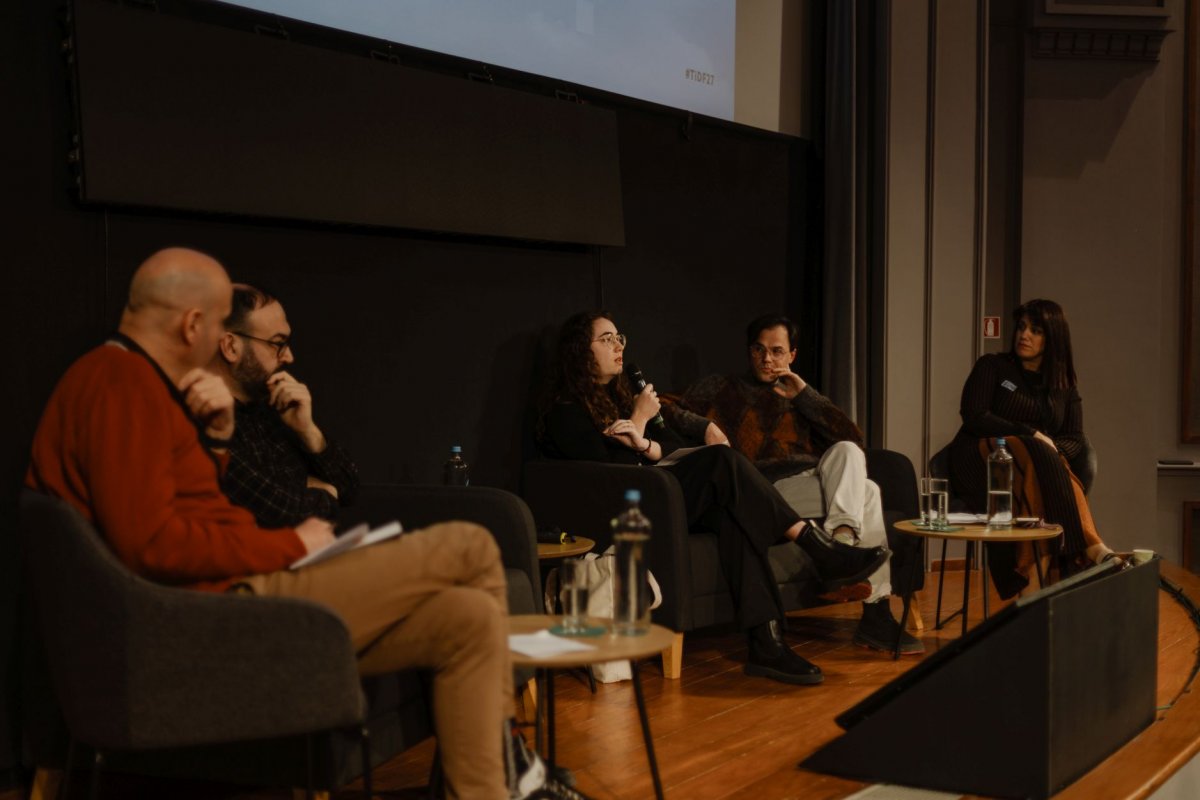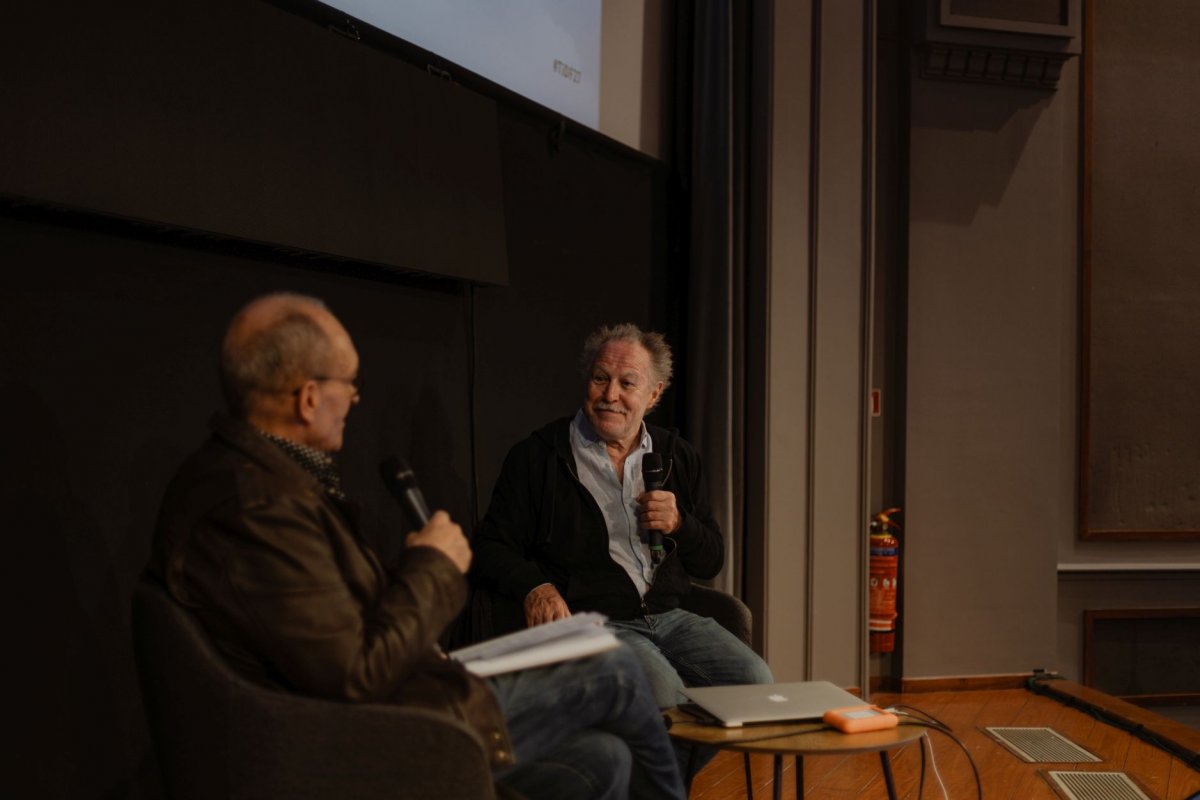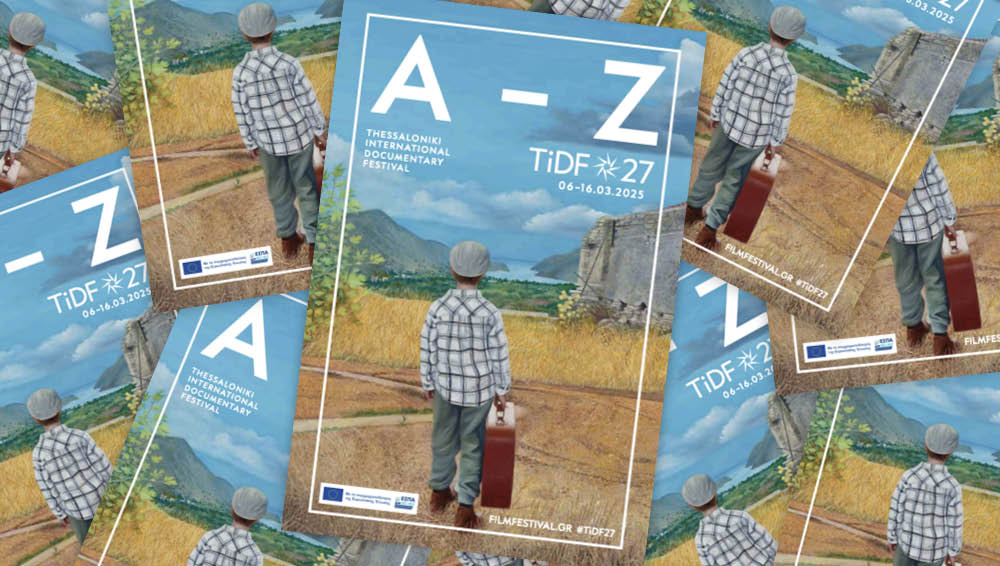The acclaimed Austrian filmmaker Hubert Sauper delivered a masterclass on Thursday, June 22nd, at the "Melina Mercouri" cultural center in Edipsos, within the framework of the prestigious international film meeting, CIRCLE Women Doc Accelerator, which is hosted at the 2nd Evia Film Project. The Oscar-nominated director shared the secrets of his art with the audience, analyzing his film We Come as Friends, which was screened on Wednesday, June 21st, at the "Apollon" cinema in Edipsos.
The floor was first taken by the moderator of the discussion, Biljana Tutorov, who welcomed the audience, giving a brief account of the activities of the CIRCLE Women Doc Accelerator. "We are delighted to welcome a true friend and an accomplished creator. This is the last of the five masterclasses we have hosted, inaugurating a collaboration between CIRCLE and Evia Film Project that we hope will continue in the future. The masterclasses so far have been constructive, and today we conclude a beautiful first cycle," she stated before handing over the floor to Hubert Sauper.
"First of all, let me express how delighted I am to be here. I will talk to you about my own approach and methodology, which can perhaps be described as 'minimalist cinema'. To put it simply, I try to keep equipment to a minimum, always carrying a small camera with me that helps me capture everything at any moment. My films advocate and represent what is known as 'cinema of contact' where the distance between the filmmaker and what is being recorded is reduced to zero. In fact, it was during the screening of my first film that I heard this term for the first time from the legendary Jean Rouch, the pioneer of 'observational documentary'. He attended the screening and took the floor during the Q&A session, delivering an impressive monologue where he described my film as a pure example of 'cinéma du lien'. At the time, I had no idea who the elderly gentleman speaking so beautifully was, but I was deeply impressed," expressed Hubert Sauper at first.
Immediately after, the Austrian filmmaker spoke both about the subject matter of his documentaries and his intensive preparation before starting the shooting process. "For every subject I engage with, I make sure to conduct extensive research beforehand. You must always remain open to the complexity of life. In the documentaries I shoot, there is no predetermined truth. A few years ago, I was assigned a project on domestic violence and abuse. I was truly shocked by the horrifying experiences that close acquaintances shared with me, experiences of which I had no inkling. It is truly striking how many layers of reality coexist, rendering even the concept of truth relative," he explained.
Hubert Sauper then went on to talk about the ideological framework of his work, which rejects the traditional definition of documentary. "I find the conventional definition of documentary not only constricting but also highly ineffective in terms of capturing a deeper portrayal of the human condition and the overall frame of reference. To be honest, I even disagree with the use of the word 'documentary' itself, which is strongly associated with the notion of a document, bringing to mind a standardized process. Instead, I prefer the term 'non-fiction cinema'. When you reduce the distance between yourself and the person you are conversing with and come to their level - both literally and metaphorically - you create a condition of equality and trust. It is also a way for me to make the colossal issues I engage with relatable in my own terms. Colonialism, exploitation, massacres, and global-scale disasters are issues that transcend the scope of our daily lives. Furthermore, if you take a look at the older BBC documentaries about Africa, you will notice that they reflect a power dynamic both aesthetically and technically. In any case, you must understand that technology and its ownership and use are almost integral and defining elements in those places. If you have a camera or a mobile phone at your disposal, your position is automatically differentiated, and it becomes immediately clear that you belong somewhere else. Of course, you can never completely eliminate your privileged position or the condition of mediation. However, you can minimize these factors by opting for a more direct and equal contact."
Hubert Sauper spoke about the timeless power of moving images. "Cinema is an almost magical force, literally cosmogonic. The process of editing reminds me of the old alchemists; it's like combining chemical elements to create a chain reaction. A documentary is not a mere recording of reality; it is the creation of a new universe constructed from various bits and pieces of reality that you have collected. That is why the form of documentary fundamentally does not differ from fictional cinema. To share a personal experience, my documentary Darwin's Nightmare, which received an Oscar nomination, greatly upset many people, and I faced threats and lawsuits from lawyers accusing me of including fabricated situations and it not being a 'legitimate' documentary. Everything is a matter of frame of reference, after all, our minds function in unimaginably complex ways. Consider that in the documentary We Come as Friends, the audience is shocked much more by a scene that does not involve any physical violence (the scene with the tennis socks) than by archival footage depicting horrifying war crimes," he stated.
Concluding, the Austrian filmmaker provided a brief historical overview of how the cinematic image established a new reality. "Many times, we operate based on the unwritten rule of self-fulfilling prophecy, where an invented or fictional image transforms into objective truth or lived experience. The first occurrence of this can be traced back to the declaration of the Spanish-American War in 1898, just three years after the first film screenings had taken place. In the unofficial war of propaganda that preceded in order to convince the American public of the necessity of the war, some short films were made depicting the explosion of an American ship and the martyrdom of its crew, using wooden toy boats in a filled bathtub. In a way, these were the earliest special effects in the history of cinema and the beginnings of Hollywood spectacle. Moving images shape not only our perception but also the very recording of history.”
CIRCLE Women Doc Accelerator is a specialized documentary development workshop addressed to women-identifying producers and directors.
Evia Film Project is the Festival’s third pillar of activities, following the International Thessaloniki Film Festival, held in November, and the Thessaloniki Documentary Festival, held in March. Its goal is to consolidate Northern Evia, a region severely hit by the 2021 calamitous wildfires, as an international hub of green cinema. Evia Film Project is actualized with the support of the Hellenic Ministry of Culture and Sports, within the framework of the Reconstruction Plan for Northern Evia, in
collaboration with the Region of Central Greece, the Greek Film Centre, the Municipality of Istiea- Edipsos, and the Municipality of Mantoudi-Limni-Agia Anna. The Thessaloniki Film Festival collaborates with the production institutions that are based in Evia and the Department of Digital
Arts and Cinema of the National and Kapodistrian University of Athens in Psachna.




